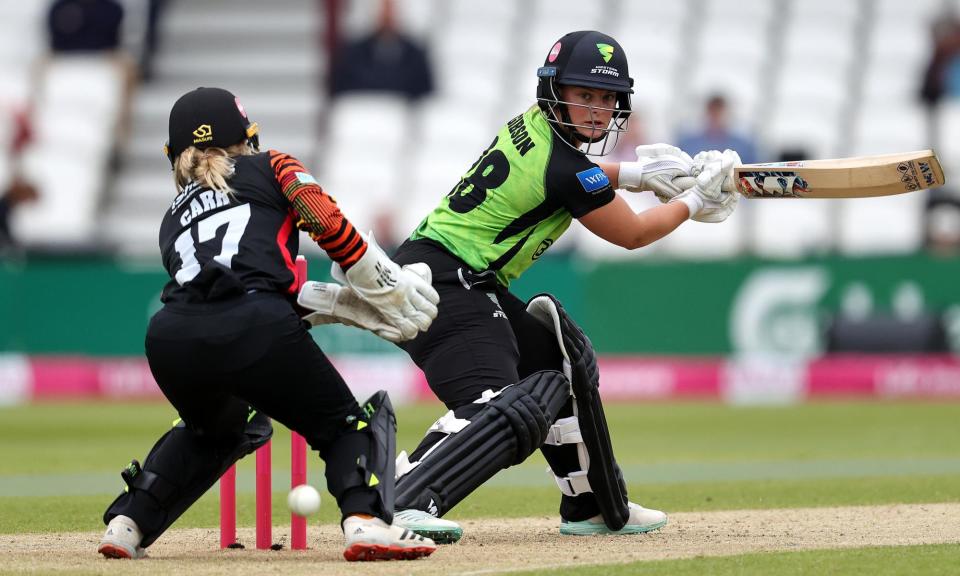Women’s cricket to undergo domestic shake-up with teams owned by counties

Women’s domestic cricket is to undergo a huge shake-up under new plans from the England and Wales Cricket Board in which ownership of teams would be transferred back to the first-class counties.
Currently there are eight independent regional teams, owned and funded centrally by the ECB. Under the new model – which will come in for the 2025 season – the counties will take direct responsibility for overseeing and growing women’s teams.
Related: The Spin | Afghanistan cricket exile Ekil Latifi: ‘We were scared they were going to kill us’
This will be the third major upheaval for the women’s game in eight years – the women’s regions have existed only since 2020 – but the ECB said the move would enable greater visibility for the women’s game, help to grow its fanbase, and provide a more compelling platform to commercialise women’s cricket. The current system is felt to have driven up performance standards but failed to generate commercial growth, with consistently low attendances at regional matches.
The 18 first-class counties, plus the MCC, are being invited to submit tenders to host one of the eight professional women’s teams. They have until 10 March to do so. The bids will be judged based on the bidder’s ability to deliver quality cricket, grow the fanbase, provide a return on the ECB’s investment, as well as their overall “vision and ambition” for women’s cricket.
The ECB will invest £1.3m annually into each of the eight teams until 2028, but the counties will be expected to generate their own financial growth with a view to the women’s game eventually being self-sustaining. The ECB chief executive, Richard Gould, praised the achievements of those involved in regional cricket, but said the ECB had “even greater ambitions for the women’s game”, adding: “We want it to be a fully fledged, sustainable, commercial, professional game.”
Beneath the eight “Tier 1” professional teams, there will be a Tier 2 and Tier 3, with teams in these tiers also attached to counties. However, these teams will be amateur, and there will be no promotion or relegation from Tier 1 until at least 2029.
The large crowds at double-headers in the Hundred, as well as the successful alignment between men’s and women’s teams in competitions such as the FA Women’s Super League, is seen by the ECB as evidence that consistent branding and alignment with men’s team helps to grow fanbases.
The move also appears to be partly a response to the report of the Independent Commission for Equity in Cricket, published in June 2023, which criticised the marginalisation of women’s cricket and found evidence of “a widespread culture of sexism and misogyny” across the professional game.
Beth Barrett-Wild, the ECB director of the women’s professional game, said: “Fundamentally this is a growth plan for cricket. This plan will ensure the game has a relevant and enduring future.
“I spend a lot of time speaking with the players and at the moment, with the way the women’s and men’s professional games are set up, there is this sense of otherness around women’s teams. We want to make sure that the players have a sense of stability and belonging. By making this transition we have an opportunity to galvanise cultural change through the game.”
While a number of first-class counties have expressed concerns about the financial implications of taking on a women’s team, others – including Essex and Durham – are said to be extremely keen on the idea of winning one of the eight Tier 1 spots. Surrey and Sussex have already announced their intentions to submit bids.
Bids will be judged by an evaluation panel appointed by the ECB, including independent members alongside representatives from the ECB board and ECB executive. “We’re going to ask some tough questions and we’re going to want to see what their plans are,” Barrett-Wild said. “We’re going to make sure they’re investing and taking this seriously.”

